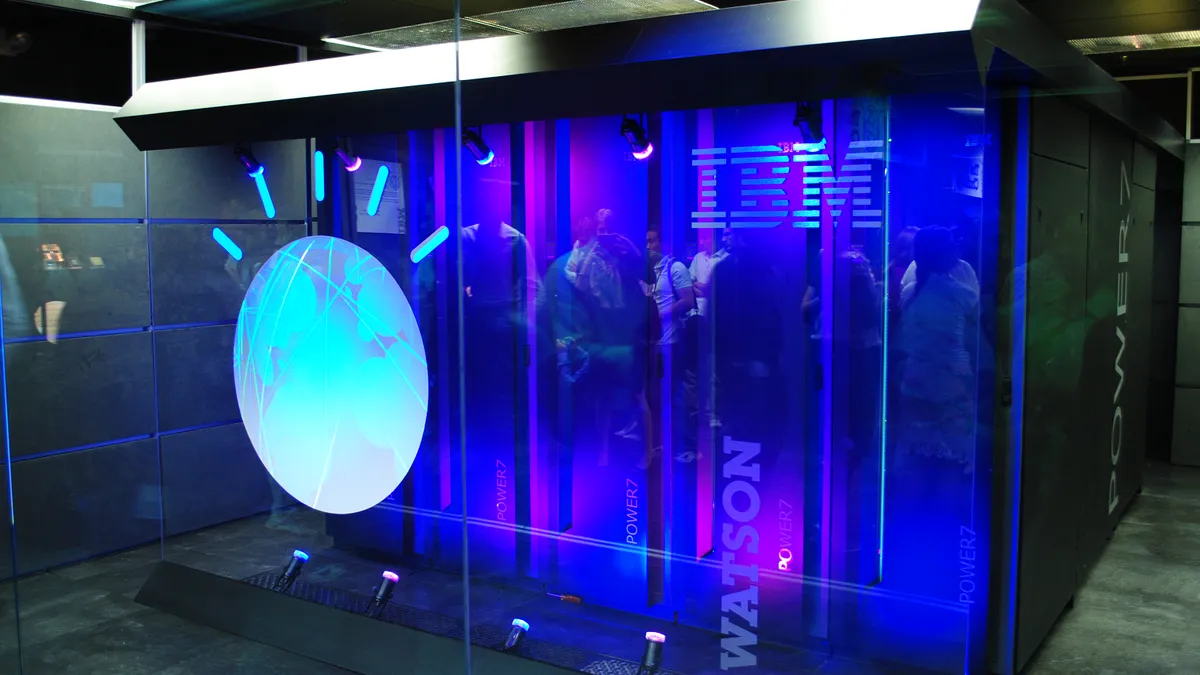Dive Brief:
- Without having been trained on the topics ahead of time, IBM's AI system Project Debater successfully debated two accomplished human debaters in a live setting — and outperformed them, according to a snap poll of audience members, according to an IBM announcement Tuesday. The company plans to commercialize the technology in IBM Watson and Cloud.
- Over the course of six years, IBM researchers built out three main capabilities for Project Debater: speech and delivery driven by data, listening comprehension for longer periods of speech and using a knowledge graph to model "human dilemmas" to create principled arguments. These capabilities allowed the system to "adapt to human rationale" and generate arguments that a human audience can keep up with.
- The project was part of an overarching strategy to develop AI that augments human intelligence. Project Debater demonstrates the ability to take in massive amounts of information and perspectives to help build arguments and make better decisions, according to the announcement.
Dive Insight:
AI has racked up plenty of wins over humans in the entertainment space — in board games, poker and video games — but the technology's growing footprint and accomplishment in real-world applications is striking awe and fear into the hearts of many. IBM Watson's appearance on Jeopardy in 2011 materialized the potential of artificial intelligence for thousands of viewers, both during its air and in the years following.
While the debate was structured into speaking portions, Project Debater pulled off its feat in an environment without clear rules, unlike the structured rules computer systems had when playing human opponents in chess or Go.
Mastering the complexities and nuance of speech is one of the biggest challenges for verbal AI systems, and businesses have invested heavily in products like intelligent assistants to ensure they sound as lifelike as possible — even going so far as to give the products personalities.
While Project Debater's voice was relatively robotic, the system did have the wherewithal to make jokes, a feature than can help humanize the computer to human audiences.
A system like Project Debater, meant to augment human capabilities and serve as a reliable source of facts and arguments, demonstrates the need for comprehensive, trustworthy training data. Done well such a system has the ability to outperform humans and help counter implicit biases or misinformation, but when fed imperfect data, as is often the case, it could lead to troubling determinations.












